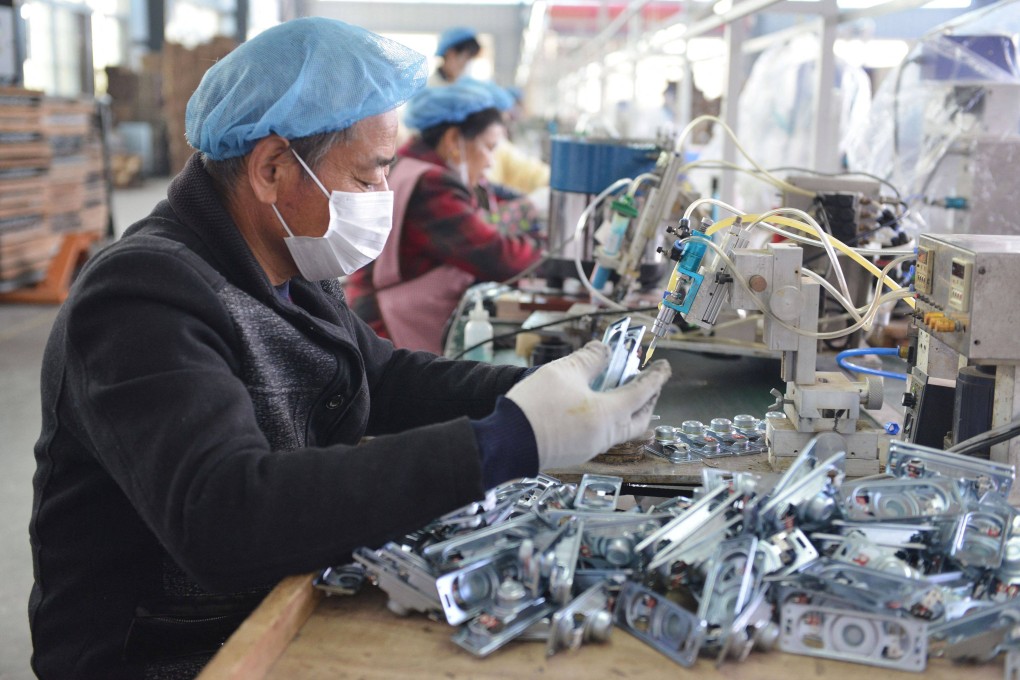China’s economy suffers ‘further loss of momentum’ as retail sales fall, ‘gloomy’ outlook amid zero-Covid
- Industrial production rose by 5 per cent in October from a year earlier, but retail sales fell by 0.5 per cent last month
- Fixed-asset investment rose by 5.8 per cent in the January-October period, while the surveyed jobless rate stood at 5.5 per cent last month

China’s fragile economic recovery was disrupted in October as coronavirus lockdowns hit consumption and manufacturing, with uncertainties set to remain following the recent easing of some parts of the zero-Covid policy, analysts said.
Industrial production, a gauge of activity in the manufacturing, mining, and utilities sectors, matched expectations and rose by 5 per cent last month, year on year, the National Bureau of Statistics (NBS) confirmed on Tuesday.
“Retail sales fell sharply last month. It retreated into negative territory for the first time since the Shanghai lockdown,” said Zichun Huang and Julian Evans-Pritchard, China economists at Capital Economics.
“This is due to intensified virus disruptions and infections picking up during the second half of October, with the number of cities with outbreaks rising towards levels last seen during the peak of the Omicron wave.”
November is shaping up to be even worse. With exports cooling, the property sector still in the doldrums and the zero-Covid policy likely to remain in place longer than many hope, the near-term outlook is gloomy
China recently eased some coronavirus containment measures, such as cutting quarantine stays for overseas arrivals, but it has offered no timetable for an exit plan from its zero-Covid policy.